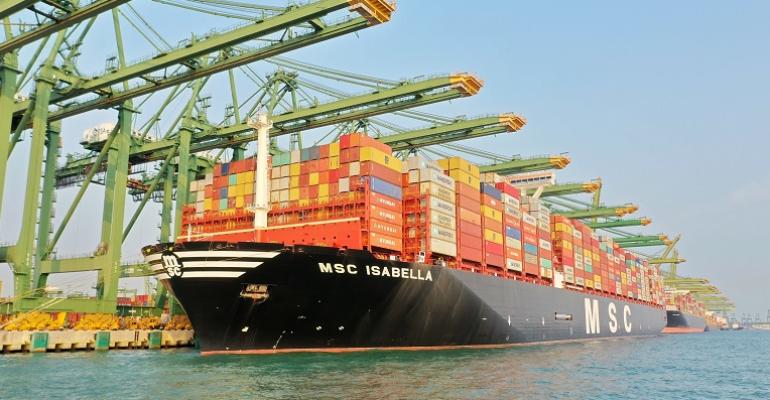MSC already has LNG-fuelled vessels with its first five newbuilding dual-fuel LNG-capable container vessels in operation, and two in the cruise sector, with MSC World Europa and MSC Euribia whose maiden voyage was powered by bio-LNG.
MSC is also exploring a range of alternative fuels and propulsion solutions. It said it sees cross-industry collaboration as crucial to scaling these solutions for the maritime industry, and it expects to operate its vessels on a range of fuel options in the future.
“We are committed to catalysing the development, accessibility and uptake of net zero fuels and believe we have found another excellent partner to help continue to drive the industry in this direction,” said Bud Darr, Executive Vice President, Maritime Policy & Government Affairs MSC Group,
“We look forward to working with SEA-LNG to further assess and collaborate on the exciting long-term prospects of bio-LNG, particularly renewable synthetic LNG, as mainstream marine fuel molecules.”
“In alignment with our net zero commitments by 2050, we view fossil-based LNG as a fuel in transition and fully expect bio and renewable synthetic LNG to be a key part of our longer-term multi-fuel strategy for deploying net zero fuels.”
The company is also a member of the Methane Abatement in Maritime Innovation Initiative (MAMII) and the Society for Gas as a Marine Fuel (SGMF).
“MSC’s decision to work with our coalition of companies across the LNG value chain demonstrates its confidence in the LNG pathway as a viable solution for flexibly advancing shipping along its decarbonization journey,” commented Peter Keller, Chairman of SEA-LNG
“LNG is available at scale for deep sea shipping today. Existing LNG infrastructure can accommodate bio-LNG and renewable synthetic LNG as they become increasingly accessible, lowering investment barriers. Waiting is not an option; the LNG pathway offers immediate decarbonisation benefits and a route to net-zero shipping,” he added.
MSC said recently that it will receive the delivery of 14 multi-fuel-capable new building vessels in 2023, 24 more vessels in 2024, 42 in 2025 and 16 in 2026, that will represent 4% of MSC fleet capacity-in teu-terms in 2023, increasing progressively to 9% in 2024, 16% in 2025 and 20% in 2026.
Copyright © 2024. All rights reserved. Seatrade, a trading name of Informa Markets (UK) Limited.
Add Seatrade Maritime News to your Google News feed.  |

